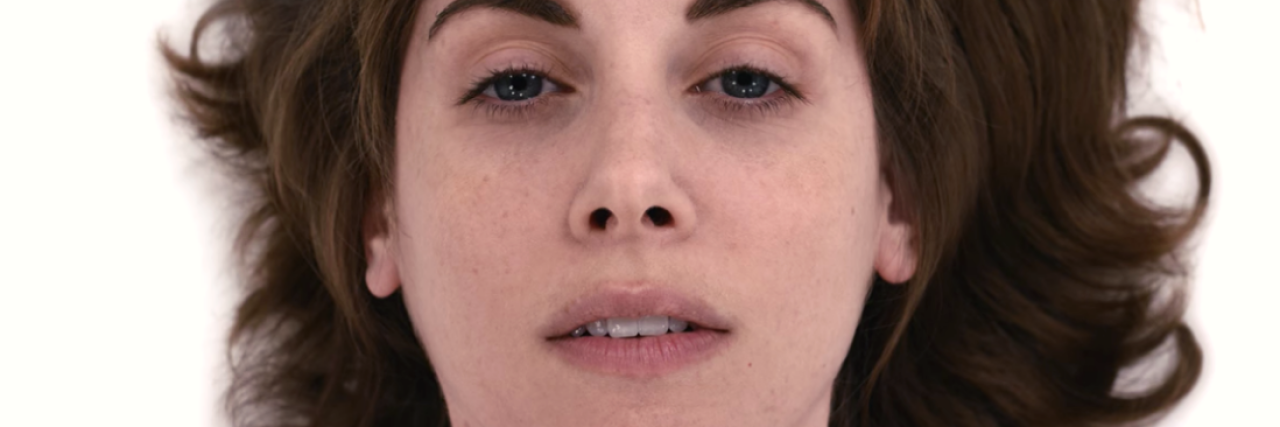Why the Ending of Netflix's 'Horse Girl' Ruined It For Me
Editor's Note
*SPOILER ALERT*
The following piece contains spoilers for the movie “Horse Girl.”
When the previews for “Horse Girl” first went live on Netflix, I knew it would only be a matter of time before I streamed it. It had a theme I look for in a movie — someone with a mental illness questioning whether or not they are indeed “ill.” I was hoping it would provide proper execution as well.
“Horse Girl” follows a young woman, Sarah (Alison Brie), as she tends to her (former) horse, visits her mother’s gravesite (who we find out later died by suicide) and goes about the average life of a less than extraordinary human. During the movie, Sarah begins to experience frightening dreams that cause her to question her reality.
In the movie, Sarah is really relatable. For example, she struggles to make meaningful connections in her Zumba class and has awkward run-ins with her high-functioning and “normal” roommate. From the start, I knew I would be rooting on Sarah. She’s awkward and strange.
I discovered Sarah was beginning to descend into a spiral a little sooner than my partner did. Her descent starts with peculiar dreams about alien abduction, waking up in bizarre places (even getting locked out of her apartment and having to call upon the seemingly perfect roommate to help her). Sarah begins staying up late (my first inkling that she might be dealing with mania); too afraid of what the dreams mean and what they do to her.
At this point, early in the first half, I felt like they executed mania-like symptoms well. As someone who has personal experience with mania, I felt they nailed what it feels like to question your own reality.
It was a little unsettling to watch as Sarah’s behaviors became more erratic as the film progressed. It reminded me of times before therapy and antipsychotics when I was wandering around the city at 2 in the morning, convinced the people I lived with were conspiring against me. I would even go as far as saying that this film, in its beginning, covered a less-seen side to mental illness.
Those of us with mental illness are typically demonized to drive a plot home, and while I don’t agree with this in any form, I do often wish that there was a delicate way to show the dark side to mental illness; because no, not all people with mental illness would ever hurt someone, but that completely washes over people who have any illness with more complications than depression and anxiety. I know for myself that if I was going through what Sarah was going through (hyperrealistic dreams, paranoia, no sleep) I probably would have wound up in the mental hospital a lot quicker than Sarah did.
This brings me to my next point; when Sarah is finally hospitalized, we start seeing her reality warp even more. She believes she already knows the girl she’s rooming with (it turns out, they’ve been having the same dream), and isn’t able to recall the actual conversations with her counselor. At this point in this film, I felt the production team had a pretty solid understanding of Sarah’s mental illness and I believed she would get better, to some extent, despite having more vivid dreams while in the psych unit. I was hoping this would open up conversations about extreme paranoia, hypervigilance and maybe even discharge plans. However, Sarah is let back into the “real world” despite still believing in her paranoid rhetoric of aliens, cloning and more.
I suppose they did this to show the broken health care system, or at least that’s what I would like to believe in hindsight, however, for me, the film falls apart after this. Sarah’s adventure became more of a sci-fi thriller rather than a touching film about mental illness, and even leads to a final scene of the aliens “beaming her up” in the woods.
And let me be the first to tell you how much this ruins a mental health movie for me.
Much like “American Horror Story: Asylum,” it’s as if aliens bringing us into space to observe us is much more likely than someone actually going through it mentally. I was beyond disheartened when the film took this spin; I related to Sarah in most scenes. Even with my diagnosis being changed to “in remission,” I still struggle with paranoia. It was nice to see someone else questioning their reality; it actually made me feel more compassionate towards myself when I was sick.
To spin the whole film in the last few minutes as “she’s not sick, there are really aliens!” felt like a cheap way to end this conversation starter of a movie. Is mental illness really that hard to digest for some people that we would rather believe conspiracies? Sarah’s feelings were very real. Psychosis is not something that is often so brilliantly and realistically acted out. This film had a really great opportunity to be so much more than it was; but once again, Hollywood let me down in hopes of ever finding a readable screenplay about someone with real mental illness aside from the illnesses that are socially acceptable and trendy.
Have you seen “Horse Girl” yet? What do you think?

